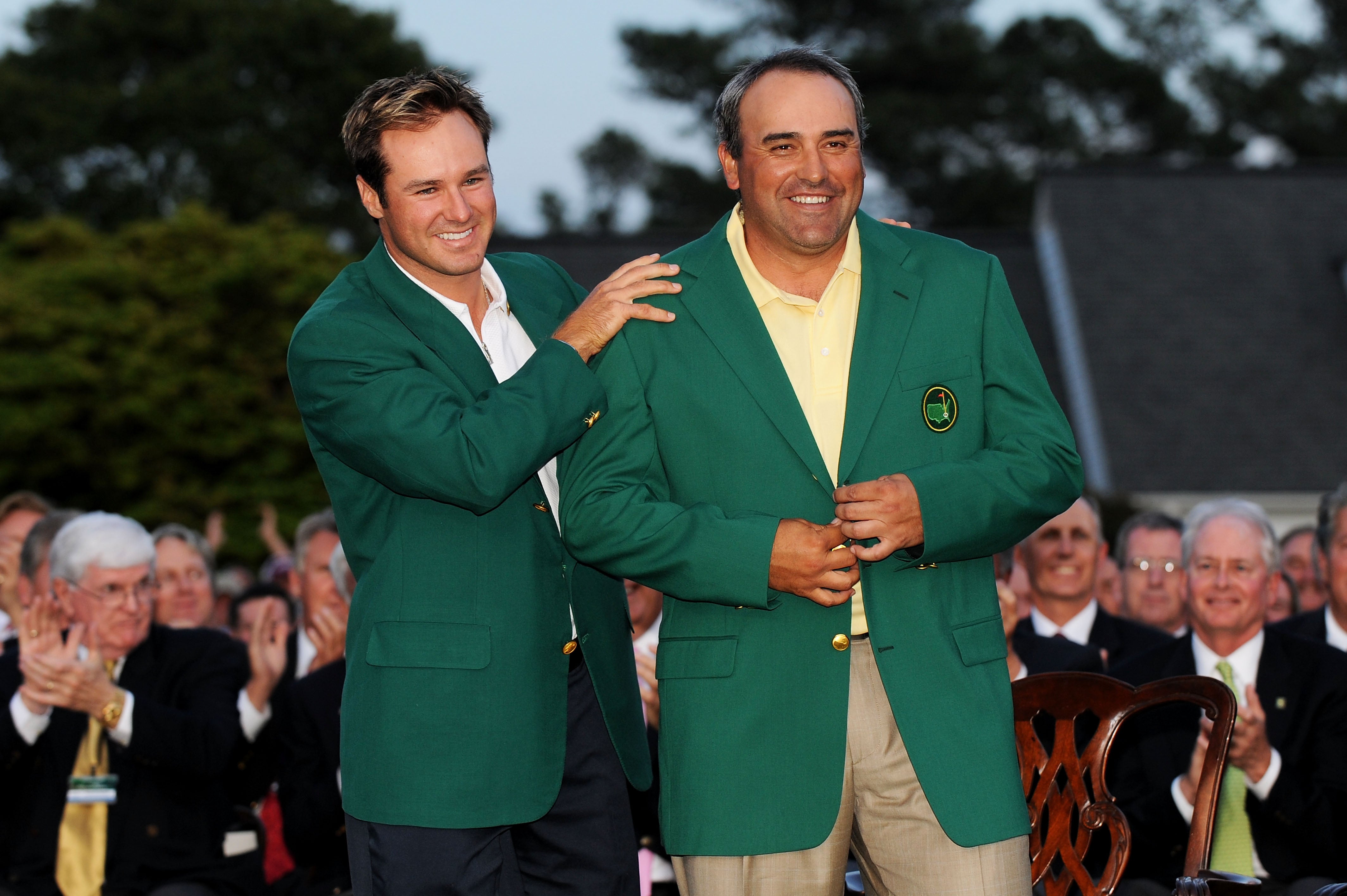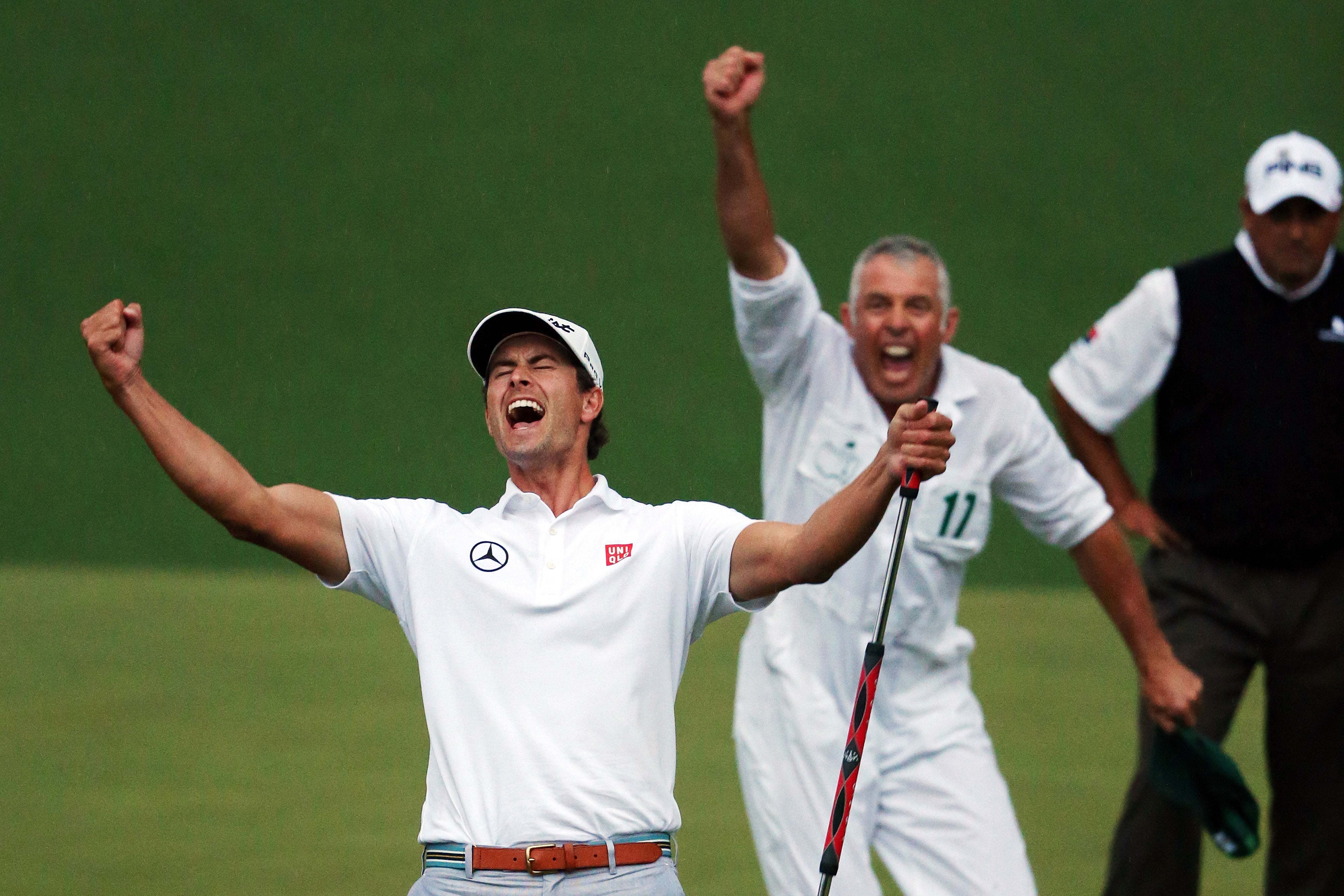
His picture is still on the wall of champions in the press building at Augusta National, sandwiched between Trevor Immelman and Phil Mickelson. His chair at the champion’s dinner Tuesday night was once again empty though and it’s fair to assume the customary annual invite to play at the year’s first golf major that all former green jacket holders receive to play was never sent.
As the Masters unfolds this week, Angel Cabrera sits in an Argentine prison for the second consecutive Augusta tournament. The two-time major winner was jailed for two years in 2021 for assaulting, threatening and harassing a former partner, before a further 28 months was added to his sentence when he was found guilty of assaulting another ex-partner.
The glory of 2009 never seemed so far away.
“A lot of kids grow up without a role model and make some bad decisions, their anger within them takes over,” said Charlie Epps, a Houston golf pro who has a father-son relationship with Cabrera. “But it doesn’t justify doing the wrong thing.”
Cabrera was an unlikely champion to begin with, a street urchin who grew up without parents and never had a formal education. A huge crowd greeted him when he flew home after winning the 2007 US Open and there was a parade in his honour.
Then he became a two-time major champion — and the first South American to win a green jacket — by triumphing in a three-way Masters playoff in 2009. His future in golf seemed unlimited.

But what was once a feel-good story has now gone bad, and no one can say for sure when Cabrera will be free, much less play golf again.
Speaking to the Sydney Morning Herald last week however, Epps suggested a summer release could be on the cards and claimed the 53-year-old still harbours ambitions of a return to professional golf.
“It’s been a rough go,” Epps said. “He was in prison in Brazil and then Argentina. He’s weathered the storm and it’s taught him a couple of very important lessons. He’s admitted that.
“He’ll probably get out some time in the summer and he’s already at a halfway house. He wants to continue his golf career, the good Lord willing. I always welcome him. We’re just waiting for him to come home.”
For his part, Cabrera appears remorseful and insists he has learned from his experiences. As he told local press after his second trail: “Many say prison is bad, but it’s not the case, prison has done me good.”
Meanwhile, Epps watches Cabrera's vacant house in Houston and wonders how it all went wrong.
“I saw a lot of it in his golf, he was a perfectionist early on and had a temper,” Epps said. “He never had a sports psychologist or anything like that and he grew up with a chip on his shoulder. Once he got it under control, he became the champion he is.”
Cabrera’s rise in the golf world wasn’t exactly meteoric, though it seemed like it at the time. Abandoned by his parents, he became a caddie at the age of eight to earn enough money to eat and it wasn’t long before he took up the game himself.
Epps was living in Argentina at the time and Cabrera caddied for some of his friends, leading the two to begin a relationship with Epps serving as an instructor and father figure to the young player. They would reconnect after Cabrera turned pro, with the work leading to his breakthrough win at the 2007 US Open.
“He really wanted to get better and he saw everybody had a coach so he asked me to help him,” Epps said. “He’s a quality golfer, a quality ball striker. He’s really athletic and could have been a soccer player, or even a linebacker if he grew up around [American] football.”

The US Open win established him as a major champion, even if the golf world didn’t totally embrace him. Cabrera didn’t speak English and never seemed to gain the kind of acclaim another player might have, even after adding the green jacket with his three-hole playoff win against Kenny Perry and Chad Campbell.
The player known as El Pato (the duck) because of his unusual gait told reporters in Spanish afterwards that it was the dream of a lifetime.
″Incredible ... I still can’t believe it,” he said.
Cabrera narrowly missed out on a second green jacket, and a third major title, at Augusta in 2013 when he made a brilliant birdie at the 72nd hole to force a playoff with Adam Scott. However, this time he was beaten, as Scott became the first Australian to win the Masters by triumphing on the second hole of the sudden death playoff.
“To follow up one victory at Augusta with two [would have been memorable], but he was totally happy with Adam’s victory,” Epps added. “He’s got a lot of respect for his fellow golfers. That’s Angel.”
This story was initially published by Associated Press in April 2022







